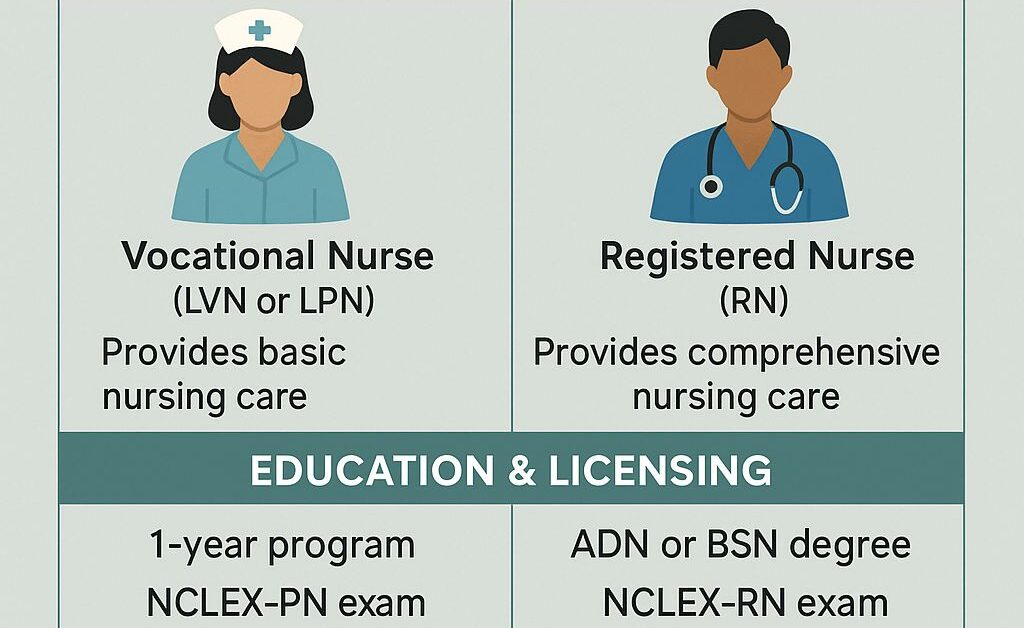Vocational schools allow you to learn hands-on training, something you can practice and build interest in as the day goes by, and you don’t need to spend years on theory and reading textbooks to make a living.
If this sounds good to you, then vocational schools in Germany are some of the best in Europe. Why so? Well, Germany is considered one of the best destinations in Europe for international students to pursue a vocational career. There you get the necessary training to stand out in life.
Vocational schools in Germany are pretty much affordable, practical, and globally recognized, and they can lead you straight to a well-paying job, ensuring that you use what you have been taught to solve world problems while still earning a good pay.
Here we will talk about vocational schools in Germany for international students in 2025 and all you need to know. So, without wasting much of our time, let’s get started.
What Are Vocational Schools in Germany?
In Germany, vocational schools are generally called “Berufsschulen.” It will also interest you to know that Germany follows a system called “dual vocational training” or “Duales Ausbildungssystem.” Don’t get confused; the latter is the German word for dual vocational training, and it means what it reads.
Simply put, you don’t sit in a classroom all day; rather, you split your time between school learning and hands-on training at a real company. This is so that while students are studying theory in vocational school, they can also work in a company to get real-life experiences. The differences are clear compared to your usual colleges.
Top Vocational Schools in Germany for International Students

Germany offers a wide range of vocational schools (Berufsschulen or Berufskollegs) that provide practical training and education in various fields. These schools are mostly public and free of tuition, making them the best destination for international students. Below is a list of top vocational schools in Germany:
| School Name | Location | Popular Courses | Tuition Fee | Required Language Level |
|---|---|---|---|---|
| Berufsbildende Schulen BBS 1 Mainz | Mainz, Rhineland-Palatinate | Nursing, IT Specialist, Hotel Management | Free (Public) | B1 German |
| Berufskolleg an der Lindenstraße | Cologne, North Rhine-Westphalia | Culinary Arts, Retail, Media Design | Free (Public) | B1–B2 German |
| OSZ TIEM (Oberstufenzentrum Technische Informatik, Elektrotechnik, Metalltechnik) | Berlin | Mechatronics, IT, Industrial Mechanics | Free (Public) | B2 German |
| BBZ Mitte (Bildungszentrum Mitte) | Kassel, Hesse | Electrician, HVAC, Technician, Logistics | Free (Public) | B1 German |
| Berufliche Schule für Gesundheit und Pflege | Hamburg | Nursing, Elderly Care, Medical Assistance | Free (Public) | B2 German |
| Berufskolleg Humboldtstraße | Düsseldorf, North Rhine-Westphalia | Hotel Management, Business, Office Administration | Free (Public) | B1–B2 German |
| Berufliches Schulzentrum für Wirtschaft und Gesundheit | Chemnitz, Saxony | Healthcare, Childcare, Nutrition | Free (Public) | B1 German |
| Staatliches Berufsschulzentrum Bamberg | Bamberg, Bavaria | Car Mechanic, Construction, Carpentry | Free (Public) | B1 German |
| Berufsschule Erlangen | Erlangen, Bavaria | Electronics, Automation, Welding | Free (Public) | B1 German |
| BBZ Norderstedt (Berufsbildungszentrum Norderstedt) | Norderstedt, Schleswig-Holstein | Retail, Office Administration, IT Systems | Free (Public) | B1 German |
Can international students apply for German vocational schools in 2025?
One of the questions people frequently ask is whether international students can apply for German vocational schools in 2025. Yes, of course, why not? If you’re from a non-EU country, you are welcome to apply for vocational training programs, as there are no constraints.
It is, however, important for you to know that certain criteria must be satisfied to be considered eligible to apply. They are as follows:
- You’ll need to provide a school leaving certificate. If you are a Nigerian, your WAEC or NECO and those that have high school diplomas can be used to apply.
- A good command of the English and German languages is a prerequisite (usually B1 or B2 level).
- You must possess a visa that permits you to live while learning in Germany.
- Sometimes, you may be required to attend a preparatory program or internship before starting.
Many vocational schools in Germany for international students are tuition-free, and you will even get a monthly salary (called an Ausbildungsvergütung) from your employer during training.
Why Choose Vocational Training in Germany in 2025?
Now that you know international students can apply for vocational training in Germany, the big question remains: why should you choose Germany of all countries to study vocation in 2025? Here are some compelling reasons why.
1. Earn While You Learn
Unlike in many other countries, in Germany, vocational students balance working and studying, and as such, they earn some money while they pursue their academics. Making anywhere between €800 and €1,200 per month during training isn’t bad after all.
2. Tuition-Free Education
Apart from the fact that you can earn while you study, most vocational schools in Germany don’t need tuition fees. Amazing, isn’t it? They are mostly publicly funded and only require that you cover your personal expenses like rent, food, transportation, and whatnot.
3. Leads to a Career Job
Nothing beats knowing that after practicing in school, when you graduate, you can secure a well-paying job in the career of your dreams. If you’re among the best brains, you can be offered full-time positions at the company where you undergo training.
4. Easy Transition to Residence or Work Visa
Some people do not know that after training, one can decide to apply for a residence permit to stay and work in Germany instead of leaving for their home country. By so doing, you can work in high-demand industries like healthcare, IT, engineering, construction, and finance.
5. Pathway to Permanent Residency
In case this is not said often enough, if you work and live in Germany for a few years after training, you can qualify for permanent residency. What this means is that you can eventually become a citizen if you want. Of course, there’s a route to take that is not as complicated as it seems.
See Also: Trade School vs College Degree Pros and Cons
Popular Vocational Courses in Germany for International Students
Germany offers over 300 recognized vocational training programs (Ausbildungen), many of which are open to international students. Below are some of the most in-demand and popular vocational courses, along with their training durations and average salaries after graduation:
| Vocational Course | Training Duration | Average Salary After Training (Monthly) |
|---|---|---|
| Nursing (Pflegefachkraft) | 3 years | €2,800 – €3,400 |
| Mechatronics Technician | 3.5 years | €3,000 – €4,000 |
| Hotel Management | 3 years | €2,500 – €3,000 |
| IT Specialist | 3 years | €3,500 – €5,000 |
| Industrial Mechanic | 3.5 years | €3,200 – €4,500 |
| Electrician | 3.5 years | €3,000 – €4,000 |
| Chef (Koch/Köchin) | 3 years | €2,000 – €2,800 |
| Car Mechanic | 3.5 years | €2,500 – €3,800 |
How to Apply for Vocational Training in Germany as an International Student
Here’s a simple step-by-step process to walk you through how to apply for vocational training in Germany as an international student.
1: Find a Vocational Program
You want to first begin by looking for vocational programs that best suit your interests. You can utilize sites such as Make it in Germany, Ausbildung.de, and Jobbörseder Bundesagentur für Arbeit. Here you can find programs that offer training positions open to foreign students.
2. Improve Your German
As much as you need to be good in English, you’re expected to know how to speak, write, and understand the German language to increase your success rate. The minimum is B1 or B2 level. You can take German language lessons in your home country or apply for courses in Germany.
3. Apply Directly to Companies
Germany’s dual training system allows you to apply directly to companies, not just the school alone. This is to say if you have an interest in working for a particular company, you can submit your CV, cover letter, school certificates, and language proof at the get-go.
4. Get a Training Contract
Now, this is where it gets interesting. In fact, this is the cherry on top of it all. Assuming the company you applied for wants to keep you, they’ll offer you a training contract (Ausbildungsvertrag). You can use this contract to apply for your visa, which, of course, is a win-win!
5. Apply for a visa.
Last but not least, once you have your contract, apply for a German vocational training visa at the German embassy or consulate in your home country. You’ll need to be patient as the processing time varies and may take a few weeks to months. Hence, it is advised to start on time.
What Follows After Graduation?
Once you finish your studies and training, your training company might be able to provide you with a permanent position. Meanwhile, you could be eligible to change to a residence permit for work and remain legally in Germany.
Some people might want to go for higher degrees at a university; particularly those in applied sciences may want to pursue advanced degrees. By working for a few years and filing your taxes, you might be eligible for permanent residency and ultimately become a German citizen.
Conclusion
This brings us to the end of this article, and so far, international students looking to earn more than just a college degree can apply to vocational schools in Germany. It is a good place to access world-class resources and build a thriving career that not only benefits Germany’s economy but also your home country should you go back home.
Pursuing your vocational studies in Germany is a great decision considering the low costs, strong job prospects, and a working system that supports skilled workers. So long as you’re ready to build a career in vocation, a move to Germany is a move in the right direction. Mind you, it’s never too late to get started!










